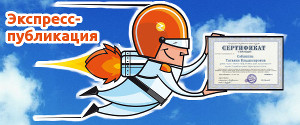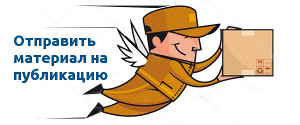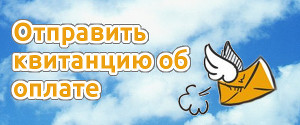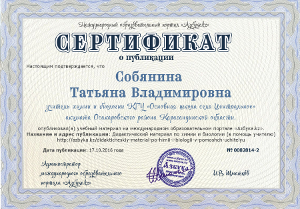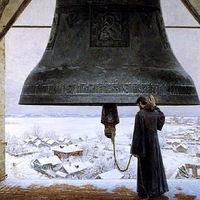Урок в 9 классе по теме «Страницы истории»
|
Шинкоренко Алла Владимировна, учитель английского языка, высшая квалификационная категория, КГУ «Гимназия «БЭСТ», СКО город Петропавловск |
 |
Тип урока: п
Цель урока: обобщение единичных знаний в систему по теме «Страницы истории»
Конспект урока
I. Warming up (Разогрев): We live in the 21st century in a fast changing world, the world of new ideas and new technologies, but we shouldn’t forget that our present life has been prepared by everything that has happened on our planet so far.
What is our history? Is it a set of books on our shelf or something else? (No, the long history of mankind is not a set of books or a string of
II. I: a) Do you like history? (Oh, yes, I do! It’s interesting to know a lot about past events)
b) What periods in the history of mankind do you find most interesting? At what time would you like to live? (As for me, I’m fond of ancient times — the civilization of Ancient Greece and Rome. I’d like to live in those times because it’s very interesting to look at the «polis», independent
c) What people played a special role in history? (Famous philosophers, writers, politicians, architects, inventers)
d) How do you see the future of our civilization? (a sample version: If people solve environmental problems that exist nowadays, future generations will have a more developed civilization)
e) What are the greatest problems the humanity faces at the moment? What can help to solve them? (environmental problems, the shortage of natural resources, wars, globalization, etc.)
III. The teacher: If we are going to speak about history and the development of civilizations, we should clear up the point — what a civilization means. Will you give me a definition? (It depends on the point of view — modern scholars say that a civilization has the following basic characteristics: political and religious structures and administration of the territories, a complex division of labor, with
How many civilizations were there in the past?
— Historians have differed greatly in this question. Nowadays they study not only civilizations of the Western World going back to Ancient Greece and Rome but also the civilizations of Islam, Byzantium, India, China, Japan and the African kingdoms.
— (карта древнего мира на доске)
IV. Listen to the text «Crete: a Culture Built on an Island». (show the island on the map) Listen to the text and understand if the information in the book is true, false or it wasn’t mentioned.
Текст аудирования:
Crete: A Culture Built on an Island
By 4,000 years ago, there were a number of civilizations in the world. Most of these cultures were in places where there was good land for farming. Yet one civilization grew on the rocky soil of Crete, an island in the Mediterranean Sea.
Crete has never been an ideal place to live. Its coasts are rough. The land is hilly and rocky. In only a few places is the land good for farming. Crete’s climate has always been mild. Winters are cool. Summers are hot. Long ago the island was a little cooler and wetter than it is now. Still, Crete has never had as much rain as the farmers there have needed.
Why, then, did people come to Crete? Perhaps because it was at the centre of the things. Across the sea to the east lay Southwest Asia. There people were already building cities. To the south it was Egypt, a growing civilization. To the north lay Europe. People there were farming and building villages along the Mediterranean Sea. Crete, then, lay at the crosswords of the Mediterranean world. This fact was very important and brought people to the shores of the island. It also helped them to build a civilization there.
The first Cretans came to the island about seven and a half thousand years ago. They probably crossed the sea from Southwest Asia. Just to find their new home, these first settlers had to know something about sailing. Early Cretans depended greatly upon the sea for food. Much of their diet was made up of fish. They also grew grapes and olives and kept sheep, goats and pigs. They drank goat milk and ate goat cheese. They also hunted wild pigs, birds and rabbits.
The Cretans lived on an island and knew the sea, they had become fine sailors. They built strong boats and sailed far from home landing in Egypt and on the coast of Southwest Asia.
As you know I was in Crete. I’ve brought some souvenirs from Crete. One of them is a Pithagorath’s cup or a «fair cup», which has a line inside. A tradition says that when Pithagoras looked after the workers who were building the town Samos, he invented this cup to moderate their wish to drink wine. Let’s make an experiment. If I pour water not uppper the line, I can easily drink water, but if I’ m greedy and the water overpasses the line, the cup has immediately emptied. The moral: drink with measure or, even, be modest with your wishes.
1. Crete is an island in the Mediterranean Sea. (true)
2. All known civilizations began growing in places suitable for farming. (false)
3. Crete’s climate has always been ideal for farming. (false)
4. The culture the people of Crete built is called Minoan civilization. (not mentioned in the text)
5. People came to Crete because it was situated in the middle of the Mediterranean world. (true)
6. The first Cretans came to the island about the year five and a half thousand (5500) BC. (true)
7. The first Cretans grew a lot of different vegetables and fruit on the island. (not mentioned in the text)
8. On Crete honey was used to sweeten food. (not mentioned in the text)
9. The first Cretans made long voyages to the north of Europe. (not mentioned in the text)
1) Ancient Egypt — it has so many wonders», wrote the Greek writer Herodotus. It developed a unique and
2) Ancient Greece — the typical unit of political and social organization was the polis’ or independent
3) Ancient Rome — ancient Romans were great lawmakers and keen politicians. We know the name of Julius Caesar, who took the title of «Dictator of Life» and allowed himself to behave like a monarch or a kind of god. That went against the political tradition and led to his murder by a group of senators.
VI. The lifestyle which we enjoy today is a result of countless ideas and inventions, which have taken many centuries of man’s history to develop.
Look at these pictures! What can you say about these inventions? (из учебника 9 класса «Английский язык» Афанасьева О.В., Михеева И.В., М, Просвещение, 2006, текст «Изобретения человечества», упр.39, стр. 38–39)
VII. Not only things that people made with their hands pave the way to the future. People themselves play a great role in the development of history. Do you know what famous people lived at the same time? Who were the contemporaries? (the pictures on the blackboard)
VIII. It’s very important what people create with their minds — their ideas, hopes and ambitions. And I’m sure you have people you admire who were outstanding philosophers, scientists, artists, heroes of wars, etc. Don’t forget to mention famous people who lived in town!
(Дети в 3–4 предложениях рассказывают о великих людях — государственных деятелях, философах, писателях, поэтах, учёных, спортсменах, артистах, почему они ими восхищаются, какие качества характера привлекли их больше всего)
Who wants to share the names of people you admire?
IX. Let’s make a conclusion! What proverbs about history do you know and how can they summarize all the material we’ve learnt?
(Students should give a proverb and explain the meaning of it, connecting with the events mentioned at the lesson)
e.g.: Happy is the country that has no history.
The pen is mightier than the sword.
History repeats itself.
All is fair to love and war.
(учащиеся объясняют, как они понимают смысл пословиц)
What proverb could be a conclusion? (Дети приводят примеры подходящих пословиц, например: «History repeats itself» — и поясняют смысл: «Our history is what we are now. It explains things to us and warns us about the future».)
Самоанализ урока в 9 а классе.
Тип урока: по признаку основной дидактической цели урока мой урок является
Тема урока: «Страницы истории».
Цель урока: обобщение единичных знаний в систему по теме «Страницы истории».
Аспекты урока:
Учебный
— активизировать навыки чтения, монологической и диалогической речи
Развивающий
— развивать речевые способности, психологические функции, связанные с речевой деятельностью: память, внимание, мышление, способность логически мыслить и умение анализировать.
Воспитательный
— воспитывать уважительное отношение к истории, ценностям, выработанным предыдущими поколениями; к истории нашей страны. Вызвать желание восхищаться и брать пример с замечательных людей, рождённых на земле Казахстана.
— развивать исследовательские и творческие навыки, способствовать развитию умения самостоятельно находить и сопоставлять факты, создавать условия для повышения интереса к изучаемому материалу.
Формы работы: предварительно: индивидуальная работа, в группе, на уроке — фронтальный, индивидуальный.
Алгоритм урока:
1. Сообщение (заранее) темы урока с рекомендацией списка вопросов, литературы, сайтов (применение
2. Обеспечение учащихся необходимым материалом: текстами, таблицами, наглядными пособиями, обобщающими схемами, картами, алгоритмом действия с сайтами, аудиоматериалами.
Самое главное в методике обобщения — включение части в целое.
3. Объединение единичных знаний в систему — самими учащимися.
4. Подведение итогов — обобщение единичных знаний самим учителем (но, с помощью учеников).
Урок проводился в 9 «а» классе. На уроке присутствовало 6 учащихся — 5 девочек и 1 мальчик. Отсутствующих — нет. 3 ученика имеют «5» по предмету «английский язык», 3ое имеют оценку «4». У всех учащихся высокий уровень мотивации к изучению иностранного языка, не случайно 2 учащихся являются призёрами (1 и 2 место) в прошлогодней городской олимпиаде по английскому языку. У всех учащихся развита беглая устная речь, сформирован самоконтроль в учении, хорошая память.
Реализация принципов обучения.
На уроке были реализованы следующие принципы:
Принцип направленности обучения на комплексное решение задач.
Принцип доступности обучения.
Каждый вид наглядности использовался для более доступного восприятия речи как учителя, так и выступающих у доски учеников, а также для развития монологического высказывания.
Принцип систематичности и последовательности в формировании знаний, умений и навыков соблюдался правильно, был правильный переход от простых заданий к более сложным.
Сознательность, активность и самостоятельность учащихся достигалась с помощью правильно поставленных вопросов, руководство обучением школьников осуществлялось по схемам учитель — ученик, ученик — ученик.
Развитие учащихся на уроке осуществлялось в полной мере. Были задействованы все учащиеся этой группы.
Преобладающий характер познавательной деятельности — творческий.
Структура урока полностью соответствует логике проведения заявленного типа урока,
Отобранное содержание урока, оборудование урока, организация активной мыслительной деятельности учащихся на всех этапах урока, формы организации учебной деятельности учащихся, применение словесных, визуальных методов, работа с учебником, с компьютером, демонстрационным материалом, картой мира, способствовали достижению образовательных целей урока, стимулировали познавательные интересы учащихся.
Уровень самостоятельного мышления школьников, их познавательной активности, уровень усвоения и использования материала я оцениваю как высокий. Уверена, что данный урок послужил отправной точкой дальнейшей познавательной деятельности учащихся.
Особый аспект на уроке имел здровьесберегающий эффект. Я, совместно с учащимися, постаралась создать атмосферу психологического комфорта на уроке.
Учащиеся на уроке были активны, внимательны, сосредоточены на решение поставленных задач. Самостоятельная подготовка к уроку, поиск нужного материала, выбор демонстрационного материла детей пропустить через сердце тему урока. И эта мысль подтверждена высказыванием древнегреческих мудрецов: «Люди могут забыть, что вы сказали. Могут забыть, что вы сделали. Но никогда не забудут, что вы заставили их почувствовать»
На данном уроке поставленные задачи были решены. Перегрузки учащихся, как физической, так и психической не было, благодаря смене видов деятельности. Уверена, что тема «Страницы истории» усвоена всеми и в полном объёме.
- 21389 просмотров




